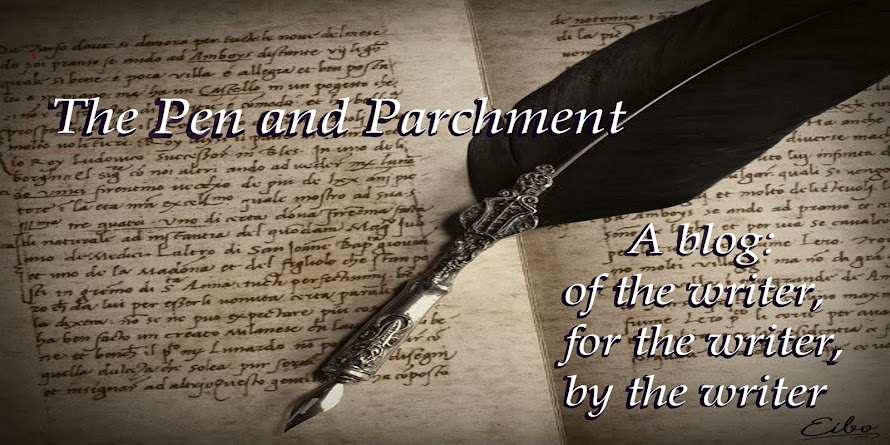From the Western Woods to Beavers’ Dam
WHAT WOULD BEST DESCRIBE YOUR PERSONALITY?
Wunderkind (Yes! *punches air* I believe that song describes me very well. :D)
HOW WOULD YOU DESCRIBE YOURSELF?
The Beggerman Jig (LOL! If you only new… ;D)
WHAT DO YOU LIKE IN A GUY/GIRL?
The Sweetness of Mary
HOW DO YOU FEEL TODAY?
Firedance (lolz)
WHAT’S YOUR MOTTO?
Gleanntain Ghlas Ghaoth Dobhair (Don’t know what that means, but it’s to the same tune as “Paddy’s Green Shamrock Shore” by the High Kings…)
Jigs
Drawn to the Rhythm (haha! Probably… ;D)
WHAT DO YOU THINK ABOUT VERY OFTEN?
Marta’s Dance/ The Russian Dervish
She Moved Through the Fair
WHAT DO YOU THINK OF YOUR BEST FRIEND?
Only Hope (very true… Jesus is my Only Hope. And I love that song!)
WHAT DO YOU THINK OF THE PERSON YOU LIKE?
Lord of the Dance (Nice! Currently I have no person I think of in the implied manner, but if he were the lord of the dance, I don’t think I would mind too awful much. Lolz!)
Factory Girl (Interesting…)
WHAT DO YOU WANT TO BE WHEN YOU GROW UP?
Danny Boy (uh… no thank you. Lolz! >.<)
WHAT DO YOU THINK WHEN YOU SEE THE PERSON YOU LIKE?
Andalucia
WHAT WILL YOU DO AT YOUR WEDDING?
Cry of the Celts
WHAT WILL THEY PLAY AT YOUR FUNERAL?
Ailein Duinn (Surprisingly, not a bad song to play at a funeral in my opinion…)
WHAT IS YOUR HOBBY/INTEREST?
Strathspeys and Reels
Lucy Meets Mr. Tumnus (LOL! Really?!)
The Butterfly
WHAT DO YOU WANT RIGHT NOW?
May it Be
WHAT DO YOU THINK OF YOUR FRIENDS?
The Foggy Dew
WHAT’S THE WORST THING THAT COULD HAPPEN?
The Countess Cathleen/ Women of the Sidhe
American Wake
WHAT MAKES YOU LAUGH?
A Narnia Lullaby (O.O)
Macedonian Morning
WILL YOU EVER GET MARRIED?
The Voice
WHAT SCARES YOU THE MOST?
Harry’s Game (Uh… hmmm…)
DOES ANYONE LIKE YOU?
Heal Their Hearts (man, the guy who sings that has a good voice!)
Only the Beginning of the Adventure… (Whaa…?! LOLZ! :D :D)
Marie’s Wedding (nice. :)
WHAT WOULD YOU WANT TO SAY TO THE PERSON WHO TAGGED YOU?
Suil La Ruin (I have no idea if I spelled that right… apparently the title of that song on my list is “track 8”. <_<)
WHAT WILL YOU NAME THIS NOTE?
New Grange
A Hero Comes Home
WHAT WOULD BEST DESCRIBE YOUR PERSONALITY?
Come By the Hills (hmmm…. Not bad…)
HOW WOULD YOU DESCRIBE YOURSELF?
Cottonwoods
WHAT DO YOU LIKE IN A GUY/GIRL?
The Wardrobe (hahaha!!! :D)
HOW DO YOU FEEL TODAY?
At the Ceili (lol! Nice!)
Way of the Warrior (lol! No… not really. Although, if I were a character in a fantasy book, maybe… ;D)
WHAT’S YOUR MOTTO?
The Rocky Road to Dublin (hahaha! Love that song!)
WHAT DO YOUR FRIENDS THINK OF YOU?
Mouth Music (hehe! Nice. :D)
WHAT DO YOUR PARENTS THINK OF YOU?
Evenstar (Ooo! I wish! I would love to be the Evenstar… *sighs*)
WHAT DO YOU THINK ABOUT VERY OFTEN?
Mo Ghile Mear
WHAT IS 2+2?
Orinoco flow
WHAT DO YOU THINK OF YOUR BEST FRIEND?
Elven Lament (hmmm… O.O)
WHAT DO YOU THINK OF THE PERSON YOU LIKE?
The Parting Glass
WHAT IS YOUR LIFE STORY?
The Heart’s Cry
WHAT DO YOU WANT TO BE WHEN YOU GROW UP?
The Blood is Strong (despite what that might seem to imply, I do not want to be a vampire… and this is not a song about vampires. But it is a very good song.)0
WHAT DO YOU THINK WHEN YOU SEE THE PERSON YOU LIKE?
Ay Fond Kiss (Lol. :D Well… maybe when I find just the right somebody…)
Fields of Glory
WHAT WILL THEY PLAY AT YOUR FUNERAL?
The Highwayman (good poem, great song.)
WHAT IS YOUR HOBBY/INTEREST?
Lift the Wings
WHAT IS YOUR BIGGEST FEAR?
The Little Beggar man (Haha! Is he a leprechaun? Or maybe a gnome… Then I might really fear him. ;D)
Riverdance Reprise
WHAT DO YOU WANT RIGHT NOW?
Galway to Graceland (beautiful song…)
WHAT DO YOU THINK OF YOUR FRIENDS?
The Mystic’s Dream (A surprisingly good song based off of the book “Mists of Avalon”)
Paddy’s Green Shamrock Shore
WHAT IS THE ONE THING YOU REGRET?
Slip into Spring/ The Harvest (O.O)
Shivna (Oo… definitely not. In fact, that song is a little scary…)
WHAT MAKES YOU CRY?
WILL YOU EVER GET MARRIED?
Reel around the Sun
The Black Velvet Band (Indeed…)
DOES ANYONE LIKE YOU?
In London So Fair (But I won’t tell you his name… ;D)
IF YOU COULD GO BACK IN TIME, WHAT WOULD YOU CHANGE?
The Wild Rover
WHAT HURTS RIGHT NOW?
Will Ye Go Lassie, Go?
WHAT WOULD YOU WANT TO SAY TO THE PERSON WHO TAGGED YOU?
Dulaman
WHAT WILL YOU NAME THIS NOTE?
Ar Eireann Ni Neosainn Ce Hi (Beautiful, Beautiful Song… *sigh* :D)


